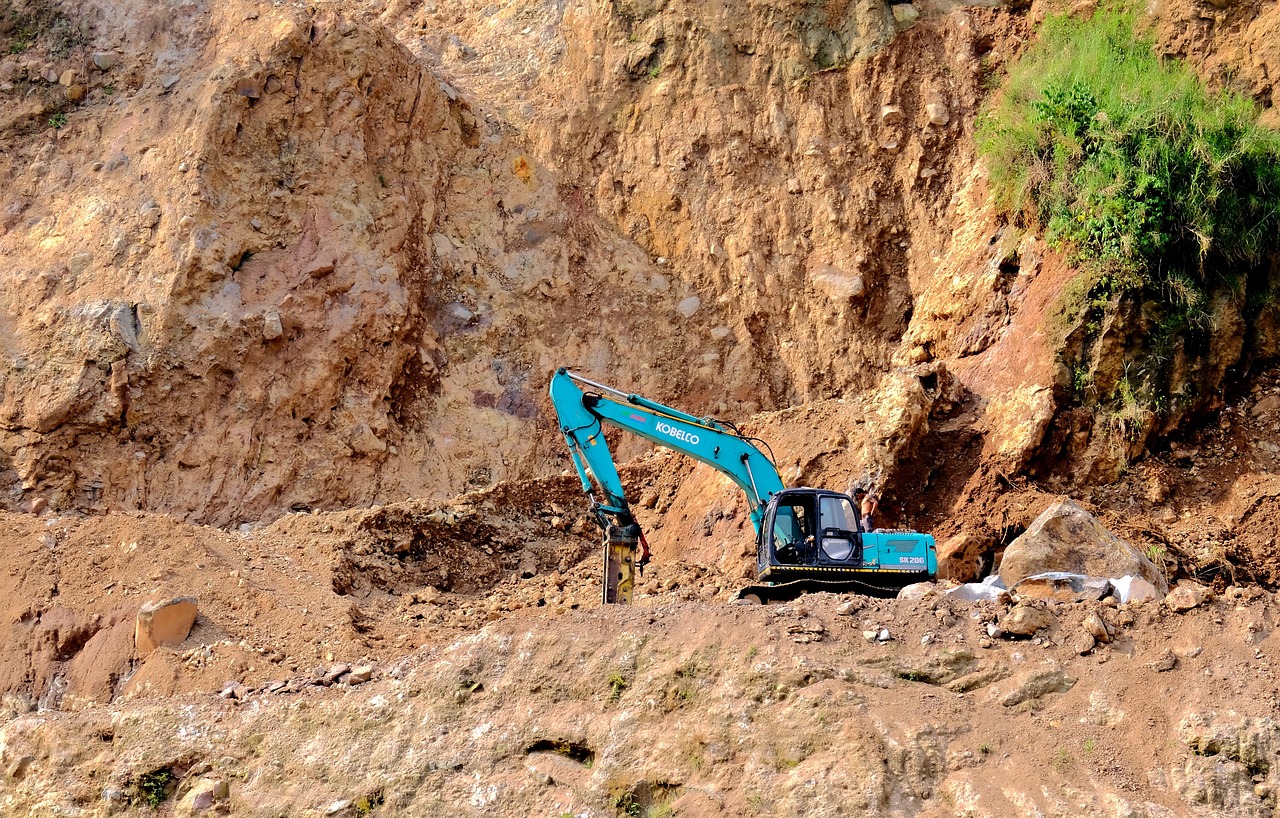Understanding the Legal Framework for Crypto Mining
In recent years, the world of cryptocurrency has exploded, capturing the attention of investors, tech enthusiasts, and regulators alike. As the popularity of crypto mining continues to surge, so does the complexity of its legal landscape. Understanding the legal framework surrounding crypto mining is crucial for anyone involved in this space, whether you're a miner, an investor, or a policy maker. The regulations that govern crypto mining vary significantly across different jurisdictions, leading to a patchwork of compliance requirements that can be both daunting and confusing.
At its core, crypto mining is the process of validating transactions on a blockchain, which in turn generates new coins. However, this seemingly straightforward activity is layered with legal implications that can affect everything from operational costs to potential profits. As governments worldwide grapple with the implications of digital currencies, they are introducing regulations that can either facilitate or hinder mining operations. This article will delve into the myriad of regulations that miners must navigate, the licensing requirements they must adhere to, and the environmental considerations that are becoming increasingly important.
Moreover, the legal landscape is not just a matter of compliance; it also has significant implications for investment decisions. For instance, in jurisdictions where regulations are stringent, miners may face higher operational costs, which can impact their profitability. Conversely, in regions with favorable regulations, miners might find it easier to scale their operations and attract investment. Thus, understanding the legal framework is not just about avoiding penalties; it's about making informed decisions that can lead to success in this rapidly evolving industry.
In the following sections, we will explore the global regulatory landscape, the specific licensing requirements imposed by various jurisdictions, and the environmental regulations that miners must consider. We will also analyze real-world case studies to illustrate compliance challenges and best practices, as well as the potential consequences of non-compliance. By the end of this article, you will have a comprehensive understanding of the legal framework for crypto mining and the critical factors that can influence your operations and investments.
As we dive deeper into the world of crypto mining, it's essential to examine how different countries approach regulations. Some nations have embraced cryptocurrency with open arms, creating favorable environments for miners. Others, however, have taken a more cautious stance, imposing strict regulations that can stifle innovation and growth. For example, countries like China have cracked down on mining operations, citing environmental concerns and financial risks, while nations such as Canada and the United States have adopted more welcoming policies, encouraging the growth of the crypto industry.
The impact of these regulatory differences cannot be overstated. Miners operating in jurisdictions with supportive regulations may enjoy lower costs and fewer barriers to entry, making it easier to establish and grow their operations. In contrast, those in restrictive environments may face hefty fines, operational shutdowns, or even criminal charges. This disparity highlights the importance of staying informed about the legal landscape in your area and any potential changes that could affect your mining operations.
One of the most critical aspects of operating a crypto mining business is understanding the licensing requirements in your jurisdiction. These requirements can vary significantly, with some countries mandating specific licenses for crypto mining operations, while others may have no formal requirements at all. For instance, in countries like Germany and Singapore, miners are often required to register their operations and obtain licenses to ensure compliance with local laws.
Compliance isn't just a bureaucratic hurdle; it can be the difference between success and failure in the crypto mining space. Without the proper licenses, miners risk facing legal repercussions that can include hefty fines or even imprisonment. Therefore, it is essential to thoroughly research and understand the licensing landscape in your jurisdiction before starting a mining operation.
When it comes to crypto mining regulations, the differences between local and international laws can be quite stark. Local regulations are often influenced by national policies, but they can also reflect the unique economic and environmental concerns of a specific region. For example, a state with abundant renewable energy sources may have more lenient regulations to encourage mining operations that utilize these resources.
On the other hand, international regulations can create challenges for miners who operate across borders. Different countries may have conflicting laws, and navigating these can be a complex task. It’s crucial for miners to have a robust understanding of both local and international regulations to ensure compliance and optimize their operations.
To illustrate the importance of compliance, let’s look at a few case studies of successful crypto mining operations. For instance, a mining company based in Norway was able to thrive by utilizing the country’s abundant hydroelectric power while adhering to local regulations. This company not only achieved operational success but also positioned itself as a leader in sustainable mining practices.
In contrast, a mining operation in China faced severe penalties for non-compliance with local laws, resulting in a forced shutdown. This example serves as a stark reminder of the potential consequences of ignoring regulations and highlights the need for miners to stay informed and compliant.
The repercussions of failing to comply with crypto mining regulations can be severe. Miners risk facing legal challenges, including fines, shutdowns, and even criminal charges. In some cases, non-compliance can lead to the confiscation of mining equipment and assets. Therefore, it is crucial for miners to prioritize compliance and stay informed about their legal obligations.
Another critical aspect of the legal framework surrounding crypto mining is the tax implications. Miners are often subject to various taxes, including income tax, sales tax, and capital gains tax. These obligations can vary significantly depending on the jurisdiction, which can complicate financial planning for mining operations. Understanding the tax landscape is essential for miners to avoid unexpected liabilities and ensure compliance with local laws.
As concerns about climate change and environmental sustainability grow, so too do the regulations surrounding the environmental impact of crypto mining. Many jurisdictions are implementing regulations aimed at reducing the ecological damage caused by mining operations, particularly those related to energy consumption and waste management. Miners must be aware of these regulations and consider their environmental footprint to remain compliant and socially responsible.
Energy consumption is a significant concern in the crypto mining industry, given the high energy demands of mining operations. Many countries are now enacting laws that govern energy use, including incentives for using renewable energy sources and penalties for excessive energy consumption. Miners can benefit from understanding these laws, as they can lead to cost savings and improved sustainability practices.
In response to environmental concerns, the crypto mining industry is increasingly adopting sustainability initiatives. These programs aim to promote responsible mining practices and reduce the industry's carbon footprint. Miners who embrace these initiatives not only contribute to environmental preservation but can also enhance their reputations and appeal to socially conscious investors.
- What are the primary legal challenges faced by crypto miners? - Legal challenges can include licensing requirements, tax obligations, and compliance with environmental regulations.
- How can miners stay informed about regulatory changes? - Miners should follow industry news, join mining associations, and consult with legal experts to stay updated on regulations.
- What are the consequences of non-compliance? - Consequences can range from fines and shutdowns to criminal charges and asset confiscation.
- Are there tax benefits for crypto miners? - Some jurisdictions may offer tax incentives for using renewable energy or for certain operational expenses, but this varies widely by location.

Global Regulatory Landscape
When diving into the world of crypto mining, one quickly realizes that the is anything but uniform. Each country has its own set of rules, guidelines, and compliance requirements that can significantly affect miners' operations. For instance, in the United States, regulations vary from state to state, with some states like Texas embracing crypto mining due to their abundant energy resources and low costs, while others, such as New York, impose strict regulations aimed at curbing environmental impacts. This patchwork of regulations creates a complex environment where miners must not only understand local laws but also anticipate how changes in policy might affect their operations.
Across the globe, countries like China have taken a drastically different approach by outright banning crypto mining due to concerns over energy consumption and financial stability. In contrast, nations like El Salvador have welcomed the industry, even going so far as to adopt Bitcoin as legal tender. These contrasting attitudes highlight the importance of staying informed about the evolving regulatory landscape, as the implications can be monumental for miners and investors alike.
Furthermore, the European Union is currently working on a comprehensive regulatory framework that aims to standardize crypto regulations across member states. This initiative, known as the Markets in Crypto-Assets (MiCA) regulation, seeks to provide legal clarity and protect consumers while fostering innovation. The introduction of such regulations could either be a boon or a bane for miners, depending on how they align with existing operational practices.
As miners navigate this intricate landscape, they must also consider the impact of international regulations. For example, the Financial Action Task Force (FATF) has set guidelines for anti-money laundering (AML) and combating the financing of terrorism (CFT), which many countries are beginning to adopt. Compliance with these international standards can be daunting, but it is crucial for ensuring the legitimacy of operations and avoiding potential legal pitfalls.
In summary, the global regulatory landscape for crypto mining is a dynamic and multifaceted arena. Miners must remain vigilant and adaptable, keeping an eye on both local and international developments to ensure their operations are compliant and sustainable. The stakes are high, and the implications of regulatory decisions can ripple through the entire industry, affecting everything from operational costs to investment strategies.
- What are the main challenges miners face regarding regulations? Miners often grapple with varying laws across jurisdictions, compliance costs, and the potential for sudden regulatory changes that can impact their operations.
- How can miners stay updated on regulatory changes? Regularly monitoring government announcements, joining industry associations, and participating in forums can help miners stay informed about the latest regulations.
- Are there any international standards for crypto mining? While there are no universal standards, organizations like the FATF provide guidelines that many countries are adopting to regulate the industry.
- What should miners do if they are unsure about compliance? Consulting with legal experts who specialize in cryptocurrency regulations is advisable to navigate complex legal landscapes effectively.

Licensing Requirements
When it comes to crypto mining, navigating the labyrinth of can feel like trying to find your way through a dense fog. Each jurisdiction has its own set of rules and regulations that miners must adhere to, which can vary dramatically from one country to another. This means that before you set up your mining operation, it’s crucial to do your homework and understand what’s required in your specific location. Failure to comply with these licensing requirements can lead to hefty fines or, worse, the shutdown of your operation.
In general, licensing for crypto mining may involve several key components:
- Business Registration: Most jurisdictions require miners to register their business with local authorities. This often involves submitting various documents and paying registration fees.
- Operational Licenses: Some regions may mandate specific operational licenses that pertain directly to crypto mining activities. These licenses can be more stringent, requiring miners to demonstrate their technical capabilities and compliance with local laws.
- Environmental Permits: Given the significant energy consumption associated with mining, many jurisdictions also require environmental permits to ensure that operations do not harm local ecosystems.
Let’s take a closer look at a few regions and their specific licensing requirements:
| Region | Business Registration | Operational License | Environmental Permit |
|---|---|---|---|
| United States | Required in most states | Varies by state | Required in some states |
| Canada | Mandatory registration | Provincial regulations apply | Often required |
| China | Restricted; varies by province | Highly regulated | Strict environmental regulations |
| European Union | Varies by member state | Common licensing frameworks | Regulated under EU law |
As you can see, the licensing landscape is anything but uniform. In some places, miners can operate with minimal oversight, while in others, the barriers to entry can be quite high. This disparity can impact investment decisions significantly. For instance, a miner considering setting up operations in a country with stringent licensing requirements might think twice if the costs outweigh the potential profits.
Moreover, it's essential to keep in mind that compliance is not a one-time event. Regulations can change, and staying updated with local laws is crucial for ongoing operations. Miners should consider consulting with legal experts who specialize in crypto regulations to ensure that they are fully compliant. This not only protects the operation from potential legal issues but also builds a trustworthy reputation in the industry.
In summary, understanding and adhering to licensing requirements is a fundamental aspect of running a successful crypto mining operation. The landscape is complex, but with the right knowledge and resources, miners can navigate these waters effectively. As the industry continues to evolve, staying informed and compliant will be key to thriving in this exciting yet challenging field.
Q1: Do I need a license to start crypto mining?
A1: Yes, in most jurisdictions, you will need to register your business and may require additional operational licenses depending on local regulations.
Q2: What are the consequences of not having the proper licenses?
A2: Failing to comply with licensing requirements can result in hefty fines, legal action, and potential shutdown of your mining operations.
Q3: How often do I need to renew my licenses?
A3: This varies by jurisdiction. Some licenses may need annual renewal, while others could be valid for several years. Always check local regulations for specific requirements.

Local vs. International Regulations
The world of crypto mining is a fascinating yet challenging landscape, especially when it comes to understanding the differences between local and international regulations. Each country has its own set of rules, and these can vary dramatically from one jurisdiction to another. Imagine trying to navigate a maze where every turn leads to a different set of rules—this is the reality for miners operating on a global scale. Local regulations often reflect the specific economic, political, and environmental priorities of a region, while international regulations aim to create a more standardized framework that can apply across borders.
For instance, in the United States, regulations can differ not only from state to state but also from city to city. Some states, like Wyoming, have embraced crypto mining by creating a favorable regulatory environment, whereas others, like New York, have imposed strict restrictions due to environmental concerns. This patchwork of regulations can create confusion for miners who are trying to comply with the law while maximizing their profits. On the other hand, international regulations, such as those proposed by the Financial Action Task Force (FATF), seek to establish guidelines that all member countries should follow, which can help harmonize the mining landscape.
When considering the implications of these varying regulations, miners must be proactive in understanding both local and international laws. Failing to do so can lead to significant operational challenges, including the risk of fines or even the shutdown of mining operations. As the regulatory environment continues to evolve, staying informed is crucial. Below is a table summarizing some key differences between local and international regulations:
| Aspect | Local Regulations | International Regulations |
|---|---|---|
| Scope | Specific to a country or region | Aim for global applicability |
| Flexibility | Can change rapidly based on local politics | More stable but can be slow to adapt |
| Compliance | Varies widely; some areas may have no regulations | Sets a baseline for compliance across jurisdictions |
| Focus | Local economic and environmental issues | Global financial stability and security |
In conclusion, navigating the legal landscape of crypto mining requires a keen understanding of both local and international regulations. Miners must be diligent in their research and compliance efforts, as the consequences of missteps can be severe. Whether you are a small-scale miner operating from your garage or a large operation with multiple facilities, understanding these regulations is essential for long-term success.
- What are the biggest challenges miners face with regulations? The biggest challenges include constantly changing laws, varying compliance requirements, and potential penalties for non-compliance.
- How can miners stay informed about regulatory changes? Miners can stay informed by following industry news, joining relevant forums, and consulting legal experts.
- Are there any international organizations that help with compliance? Yes, organizations like the Financial Action Task Force (FATF) provide guidelines that can help miners comply with international standards.

Case Studies of Compliance
When it comes to navigating the intricate maze of crypto mining regulations, real-world examples can provide invaluable insights. One such case is the operation of Bitmain Technologies, a major player in the mining hardware sector. Based in China, Bitmain has faced numerous regulatory challenges due to the shifting stance of the Chinese government on cryptocurrency. In response, they established a compliance team that actively engages with local authorities to ensure adherence to the latest regulations. This proactive approach not only helped them maintain their operations but also positioned them as a trusted entity in a tumultuous market.
Another noteworthy example is Marathon Digital Holdings, a prominent U.S.-based mining company. Marathon has made headlines for its commitment to compliance and sustainability. They have partnered with local governments to ensure that their mining operations meet environmental standards. By investing in renewable energy sources, they not only comply with regulations but also enhance their brand image as a responsible miner. This strategy has proven effective, as it has attracted environmentally-conscious investors and set a precedent for others in the industry.
In Europe, Hive Blockchain Technologies serves as an exemplary model of compliance. Operating primarily in Canada and Sweden, Hive has embraced transparency by publicly sharing their compliance strategies and environmental impact reports. Their dedication to following local laws and regulations has earned them a favorable reputation and facilitated smoother operations. By engaging with community stakeholders and adhering to stringent environmental regulations, Hive has demonstrated that compliance can be a competitive advantage in the crypto mining landscape.
These case studies illustrate that compliance is not merely a box to check; it is a crucial aspect of a mining operation's success. By prioritizing adherence to regulations, companies can not only avoid legal pitfalls but also foster trust with investors and the community. The lessons learned from these pioneers highlight the importance of being proactive, transparent, and adaptable in an ever-evolving regulatory environment.
- What are the main challenges crypto miners face regarding compliance?
Compliance challenges vary by jurisdiction but often include navigating complex regulations, obtaining necessary licenses, and adhering to environmental laws. - How can miners ensure they remain compliant?
Staying informed about local regulations, engaging with legal experts, and adopting best practices from successful case studies can help miners maintain compliance. - What are the consequences of non-compliance?
Non-compliance can lead to hefty fines, loss of operating licenses, and even criminal charges, depending on the severity of the violation. - Are there any tax implications for crypto miners?
Yes, crypto miners must consider various tax obligations, including income tax, sales tax, and capital gains tax, which can differ significantly by jurisdiction.

Consequences of Non-Compliance
In the rapidly evolving world of crypto mining, non-compliance with legal regulations can have severe repercussions that every miner and investor must consider. Imagine investing substantial resources into mining operations only to find yourself facing hefty fines or, worse, criminal charges. The stakes are undeniably high, and the landscape is fraught with potential pitfalls.
One of the most immediate consequences of non-compliance is the imposition of fines and penalties. These can vary significantly depending on the jurisdiction and the severity of the violation. For instance, in countries with stringent regulations, fines can reach astronomical figures, often exceeding the profits generated by the mining operations themselves. It’s like being hit with a double whammy—losing not only your earnings but also facing financial penalties that can cripple your business.
Moreover, non-compliance can lead to legal actions against individuals or companies. Regulatory bodies may initiate investigations, resulting in costly legal battles that drain resources and time. In extreme cases, miners may even face criminal charges, which can lead to imprisonment. This is particularly true in jurisdictions where crypto mining is heavily scrutinized. The fear of legal repercussions can create a chilling effect, discouraging potential investors and partners from engaging in business with non-compliant miners.
Additionally, the reputational damage caused by non-compliance can be long-lasting. In an industry built on trust and transparency, being labeled as a "bad actor" can tarnish a miner's reputation. This can lead to loss of business opportunities, as clients and partners may shy away from associations with companies that have a history of regulatory issues. In a world where word-of-mouth and online reviews can make or break a business, maintaining a clean compliance record is crucial.
Furthermore, the operational impact of non-compliance can be detrimental. Miners may be forced to halt operations while they rectify compliance issues, leading to lost revenue during downtime. In some cases, authorities may even shut down operations entirely, forcing miners to dismantle their setups and abandon their investments. This disruption can be likened to a ship caught in a storm, where the captain must navigate treacherous waters to avoid capsizing.
To illustrate the potential consequences of non-compliance, consider the following table that outlines common penalties faced by miners across various jurisdictions:
| Jurisdiction | Type of Penalty | Potential Fine | Legal Action |
|---|---|---|---|
| United States | Fines | $10,000 - $1,000,000 | Possible criminal charges |
| China | Shutdown of operations | N/A | Possible imprisonment |
| European Union | Fines | €5,000 - €500,000 | Legal investigation |
| Russia | Fines & Shutdown | 100,000 - 1,000,000 RUB | Possible criminal charges |
In summary, the consequences of non-compliance in the crypto mining industry can be severe and multifaceted. From financial penalties to legal repercussions and reputational damage, the risks are significant. Therefore, it is imperative for miners to stay informed about the evolving regulatory landscape and ensure that their operations are in full compliance with local and international laws. After all, navigating the complexities of crypto mining is much like sailing a ship; one must be aware of the waters to avoid capsizing.
- What should I do if I realize I'm non-compliant? It's crucial to consult with a legal expert familiar with crypto regulations in your jurisdiction to rectify the situation promptly.
- Can compliance improve my business prospects? Absolutely! Being compliant not only protects you from legal issues but also enhances your reputation and attracts potential investors.
- Are penalties for non-compliance the same worldwide? No, penalties vary greatly by jurisdiction, so it's essential to understand the specific regulations in your area.

Tax Implications
When diving into the world of crypto mining, it's crucial to understand that the financial rewards come with a set of tax obligations that vary significantly across different jurisdictions. Whether you're an individual miner operating from your garage or part of a large mining farm, the tax implications can be as complex as the technology itself. So, what should you be aware of? First off, miners typically face three main types of taxes: income tax, sales tax, and capital gains tax. Each of these taxes has its own set of rules and regulations, and failing to comply can lead to hefty penalties.
Income tax is often the most immediate concern for miners. When you mine cryptocurrency, the IRS (in the United States) considers it as income at the time of creation. This means that the fair market value of the coins on the day you mine them is what you need to report. For example, if you mined a Bitcoin when it was valued at $40,000, that amount is taxable income, regardless of whether you sell the Bitcoin or hold onto it. This can be quite a shock for new miners who may not have anticipated such a tax burden. To illustrate, consider the following table:
| Mining Scenario | Value at Mining | Taxable Income |
|---|---|---|
| 1 Bitcoin Mined | $40,000 | $40,000 |
| 5 Ethereum Mined | $3,000 | $3,000 |
Next, let's talk about sales tax. In some jurisdictions, if you decide to sell your mined coins, you may also be liable for sales tax on the transaction. This adds another layer of complexity, especially for those who frequently trade or sell their mined assets. The rules around sales tax can vary widely, so it's essential to consult local laws or a tax professional to ensure compliance.
Lastly, capital gains tax comes into play when you sell your mined coins. If you sell your Bitcoin for a profit, the difference between the price at which you mined it and the price at which you sold it is subject to capital gains tax. For instance, if you mined Bitcoin at $40,000 and later sold it for $50,000, you'll owe taxes on that $10,000 gain. The tax rate can vary depending on how long you've held the asset, with short-term gains typically taxed at a higher rate than long-term gains.
In summary, the tax implications of crypto mining are multifaceted and can vary greatly depending on where you live. It's essential to keep meticulous records of your mining activities, including the value of the coins at the time of mining and any subsequent transactions. This will not only help you stay compliant but also make tax season a lot less stressful. Always remember to consult with a tax advisor who understands the nuances of cryptocurrency to navigate this complex landscape effectively.
- Do I have to pay taxes on mined cryptocurrency? Yes, mined cryptocurrency is considered taxable income at the fair market value at the time of mining.
- What records should I keep for tax purposes? Keep detailed records of your mining activities, including the date mined, amount mined, and fair market value on that date.
- Are there any tax benefits for crypto miners? Some jurisdictions offer tax incentives for using renewable energy sources, which can reduce overall tax liability.

Environmental Regulations
The rise of cryptocurrency has not only transformed the financial landscape but has also raised significant environmental concerns. As the popularity of crypto mining continues to soar, so does the scrutiny it faces from regulators and environmental advocates alike. Miners are often seen as the culprits behind excessive energy consumption and ecological degradation, leading to a growing demand for aimed at mitigating these impacts. In this section, we will delve into the various regulations that govern the environmental aspects of crypto mining and the industry's response to these challenges.
One of the primary concerns surrounding crypto mining is its high energy consumption. Mining operations require substantial computational power, which in turn translates to a significant demand for electricity. This has led to a wave of regulations focused on energy consumption and its environmental effects. For instance, some jurisdictions have begun to implement energy consumption laws that not only cap the amount of energy miners can use but also incentivize the use of renewable energy sources. These regulations are designed to encourage miners to adopt more sustainable practices, thereby reducing their carbon footprint.
In addition to energy consumption laws, many regions have introduced incentives for sustainable practices. These incentives can take various forms, including tax breaks, subsidies for using renewable energy, or grants for investing in energy-efficient mining equipment. For example, in places like Norway, where hydropower is abundant, miners can benefit from lower electricity rates, provided they adhere to environmental standards. This not only helps miners save on operational costs but also aligns their activities with broader environmental goals.
However, the landscape is not entirely rosy. There are also stringent penalties for those who fail to comply with environmental regulations. Non-compliance can result in hefty fines, operational shutdowns, or even criminal charges in extreme cases. This has created a climate of caution among miners, who must navigate a complex web of local, national, and international laws. Understanding and adhering to these regulations is crucial for miners who wish to operate legally and sustainably.
To illustrate the importance of compliance, let's look at a few case studies of mining operations that have successfully integrated environmental regulations into their business models. For instance, a mining facility in Washington State implemented a series of energy-efficient measures and partnered with local renewable energy providers. This not only helped them stay compliant with state regulations but also enhanced their reputation as a responsible operator in the industry.
Moreover, the conversation around crypto mining's environmental impact is evolving. Many in the industry are actively participating in sustainability initiatives, such as the Crypto Climate Accord, which aims to decarbonize the crypto industry by 2030. These initiatives reflect a growing recognition that the future of crypto mining is intertwined with environmental stewardship. As miners adopt more sustainable practices, they not only contribute to the health of the planet but also position themselves favorably in the eyes of regulators and investors.
In conclusion, the environmental regulations surrounding crypto mining are multifaceted and constantly evolving. Miners must stay informed and adapt to these changes to ensure compliance and sustainability. By embracing these regulations and actively participating in sustainability initiatives, the crypto mining industry can transform its image from a polluter to a pioneer of green technology.
- What are the main environmental concerns related to crypto mining?
Crypto mining primarily raises concerns about high energy consumption and its contribution to carbon emissions. - How do regulations impact crypto mining operations?
Regulations can impose limits on energy usage, require compliance with environmental standards, and introduce penalties for non-compliance. - Are there incentives for sustainable mining practices?
Yes, many jurisdictions offer tax breaks and subsidies for miners who utilize renewable energy sources or invest in energy-efficient technologies. - What initiatives are in place to promote sustainability in crypto mining?
Initiatives like the Crypto Climate Accord aim to decarbonize the crypto industry and encourage miners to adopt greener practices.

Energy Consumption Laws
The world of crypto mining is not just about the thrill of the chase for digital currency; it's also heavily intertwined with the laws governing energy consumption. As miners operate massive computational rigs, the energy demands can be astronomical, prompting governments to step in with regulations aimed at managing this consumption. These vary significantly across jurisdictions, reflecting local priorities and environmental concerns. For instance, in some regions, miners may find themselves incentivized to utilize renewable energy sources, while in others, they may face stringent penalties for excessive energy use.
In many countries, energy consumption laws are designed to balance the growth of the cryptocurrency industry with the need for sustainable practices. Miners are often encouraged to adopt green energy solutions through tax breaks or subsidies. This not only helps in reducing the carbon footprint but also aligns with global efforts to combat climate change. For example, in places like Norway and Iceland, where hydroelectric power is abundant, miners can operate at significantly lower costs while also being environmentally friendly.
Conversely, areas facing energy shortages or high carbon emissions are likely to impose stricter regulations. In these regions, miners might be required to adhere to specific energy consumption limits or face heavy fines. Some jurisdictions have even gone so far as to temporarily ban crypto mining operations during peak energy demand periods. This creates a complex landscape where miners must remain agile and informed about local laws to avoid operational disruptions.
| Jurisdiction | Regulation Type | Incentives/Penalties |
|---|---|---|
| Norway | Renewable Energy Incentives | Tax breaks for using hydroelectric power |
| China | Energy Consumption Limits | Penalties for exceeding energy quotas |
| Texas, USA | Flexible Energy Usage | Incentives for off-peak energy usage |
As the industry evolves, so too do the laws governing energy consumption. Miners need to stay ahead of these changes, not only to ensure compliance but also to capitalize on potential benefits. The future of crypto mining will likely see a greater emphasis on sustainability, with laws evolving to encourage practices that reduce energy consumption and promote renewable energy sources. It's a fascinating time to be involved in this space, but it requires a keen understanding of the regulatory environment.
Q1: What are energy consumption laws?
Energy consumption laws are regulations that govern how much energy can be used by various industries, including crypto mining. These laws often include incentives for using renewable energy and penalties for excessive consumption.
Q2: How do these laws affect crypto miners?
Crypto miners must comply with local energy consumption laws to avoid penalties and operational disruptions. Understanding these laws is crucial for sustainable and profitable mining operations.
Q3: Are there incentives for using renewable energy in crypto mining?
Yes, many jurisdictions offer tax breaks or subsidies for miners who utilize renewable energy sources, encouraging sustainable practices within the industry.
Q4: What happens if miners exceed energy consumption limits?
Miners who exceed energy consumption limits may face heavy fines or even temporary bans on their operations, depending on local regulations.

Sustainability Initiatives
The crypto mining industry has come under increasing scrutiny for its environmental impact, particularly due to its high energy consumption and carbon footprint. In response, many miners and companies are proactively adopting to mitigate these effects and align with global efforts to combat climate change. These initiatives not only aim to reduce the ecological footprint of mining operations but also enhance the public perception of the industry, which has often been viewed as a significant polluter.
One of the most prominent trends in sustainability is the shift towards using renewable energy sources. Miners are increasingly setting up operations in regions where hydroelectric, solar, or wind power is abundant and affordable. For instance, in countries like Iceland and Norway, where geothermal and hydroelectric power are prevalent, miners are capitalizing on these renewable resources to power their operations. This not only lowers their energy costs but also significantly reduces their carbon emissions.
Moreover, some mining companies are investing in energy efficiency technologies. By upgrading their hardware to more energy-efficient models, they can achieve greater hashing power with lower energy consumption. This transition is akin to swapping out an old gas-guzzler for a sleek electric vehicle; the performance improves while the environmental impact decreases. Additionally, many miners are exploring innovative cooling solutions, such as using ambient air or water cooling systems, to further reduce energy usage.
Another fascinating aspect of these sustainability initiatives is the concept of carbon offsetting. Some companies are purchasing carbon credits to compensate for their emissions, effectively investing in projects that promote reforestation or renewable energy development. This practice not only helps to neutralize their carbon footprint but also contributes to broader environmental goals. In fact, a growing number of miners are publicly committing to achieving net-zero emissions by a specific target date, showcasing their dedication to sustainable practices.
Additionally, community engagement plays a vital role in these sustainability efforts. Many mining operations are collaborating with local governments and organizations to promote environmental stewardship. This can include initiatives such as sponsoring local conservation projects or participating in community clean-up events. By actively engaging with the community, miners can foster goodwill and demonstrate their commitment to responsible mining practices.
As the industry continues to evolve, it’s clear that sustainability initiatives are not just a trend but a necessary evolution. The push for greener practices is becoming a significant factor in investment decisions. Investors are increasingly prioritizing companies that demonstrate a commitment to sustainability, recognizing that these practices can lead to long-term profitability and viability in a world that is becoming more environmentally conscious.
In conclusion, the crypto mining sector is gradually embracing sustainability initiatives that not only address the environmental concerns associated with their operations but also pave the way for a more responsible future. By investing in renewable energy, improving energy efficiency, engaging in carbon offsetting, and fostering community relationships, miners can significantly reduce their ecological impact while enhancing their reputation and operational success.
- What are the main sustainability initiatives in crypto mining? Many initiatives focus on using renewable energy, improving energy efficiency, carbon offsetting, and community engagement.
- How does renewable energy benefit crypto miners? It reduces energy costs and lowers carbon emissions, making operations more sustainable and cost-effective.
- What is carbon offsetting? It involves investing in projects that reduce carbon emissions to compensate for one's own emissions, such as reforestation or renewable energy projects.
- Why is sustainability important for crypto mining? Sustainability helps address environmental concerns, improves public perception, and can lead to better investment opportunities.
Frequently Asked Questions
- What are the main legal challenges faced by crypto miners?
Crypto miners often grapple with a patchwork of regulations that vary widely by jurisdiction. These include licensing requirements, compliance with local laws, and navigating international regulations. The legal landscape can be quite daunting, making it essential for miners to stay informed and compliant to avoid potential penalties.
- Do I need a license to operate a crypto mining business?
Yes, in many jurisdictions, you will need to obtain specific licenses or permits to legally operate a crypto mining business. The requirements can differ significantly depending on where you are located, so it’s crucial to research local regulations and ensure you meet all legal obligations.
- What are the potential penalties for non-compliance?
Failing to comply with crypto mining regulations can lead to serious consequences, including hefty fines, shutdown of operations, or even legal action. It’s vital to adhere to local laws to avoid these repercussions and maintain a sustainable business.
- How do tax obligations work for crypto miners?
Crypto miners are subject to various tax obligations, including income tax on earnings, sales tax on equipment, and capital gains tax when selling mined cryptocurrencies. Tax regulations can differ by country, so it's wise to consult with a tax professional familiar with crypto to ensure compliance.
- What environmental regulations affect crypto mining?
Many jurisdictions have introduced environmental regulations aimed at mitigating the ecological impact of crypto mining. These can include limits on energy consumption, incentives for using renewable energy, and mandates for sustainable practices within the industry.
- Are there initiatives promoting sustainable crypto mining?
Yes, there are several initiatives and programs designed to encourage sustainable practices in crypto mining. These initiatives often focus on reducing energy consumption, promoting the use of renewable energy sources, and minimizing the overall environmental footprint of mining operations.
- How can miners stay updated on regulatory changes?
Staying updated on regulatory changes is crucial for miners. They can do this by following industry news through reputable sources, joining crypto mining forums, and participating in local or online communities that discuss legal issues and compliance strategies.



















